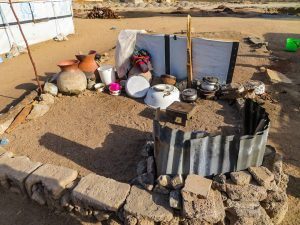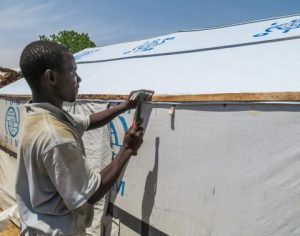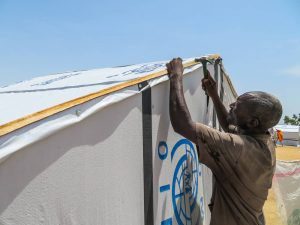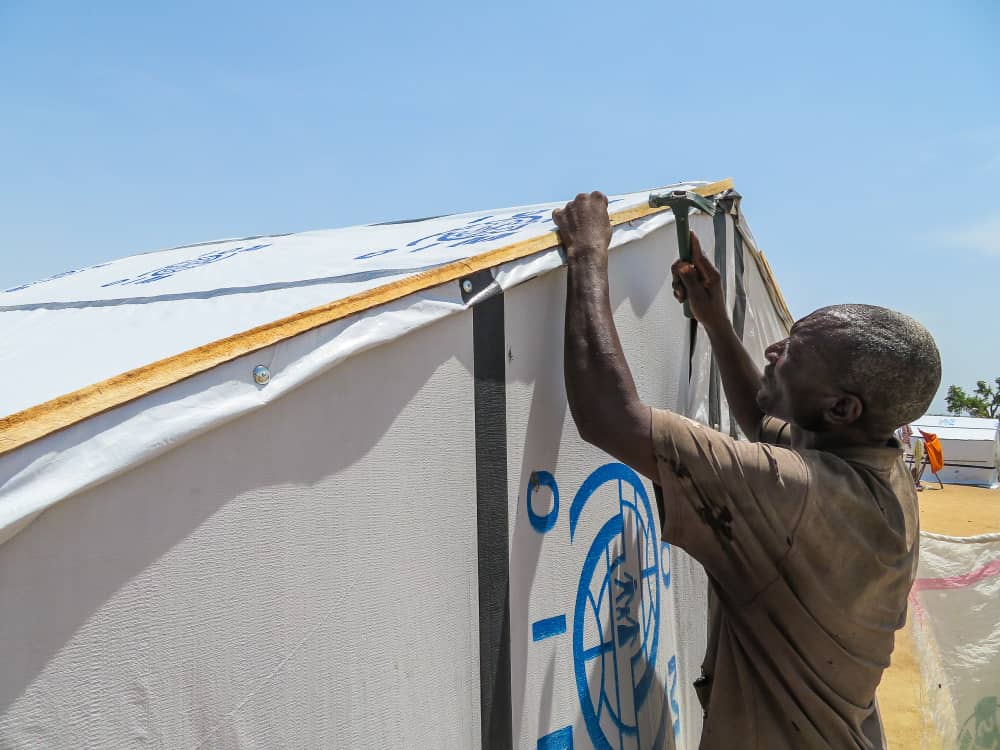


Displaced communities in various parts of the country are gradually preparing for the heavy rains to come.
According to reports, 395 shelters in camps and camp-like settings in Borno State have been damaged or destroyed since heavy rains began at the end of April. A total of 41 camps hosting more than 300,000 internally displaced persons (IDPs) have been classified as prone to flooding; some in hard-to-reach areas like Monguno, Konduga, Bama and others.
The International Organization for Migration (IOM) in Nigeria says will respond to the needs of displaced populations through a multi-sectoral rainy season emergency response plan. The Organization will prioritize its interventions toward households with children under five, pregnant women, elderly people and single female households.
IOM teams are being deployed to repair or strengthen shelters in case of flooding, sensitize people to flood risks and conduct shelter and infrastructure maintenance. Other small-scale community-driven mitigation measures include waste management in camps and building or repairing drainage canals.
Borno State is affected by strong winds, storms and flooding on an annual basis. Yearly rains often ravage shelters where IDPs live, and cause blockage of water circulation pathways and drainage systems.
CCCM teams have constructed water pumps in the affected displacement sites where water ways or drainage systems are non-existent. Sand bags have been used in flood-prone areas to divert water from flowing into shelters or pathways.
“Preventive measures are key,” said Nadia Tithi, IOM Nigeria Shelter Programme Manager. “Urgent needs remain, and this year, we’re reinforcing more than 3,000 emergency shelters before the strongest rains hit,” she added.
Staff are also repairing structures where IDPs live and distributing nearly 4,000 emergency shelter kits throughout Borno and Adamawa States. The kits serve as a contingency measure and in some cases, have already been distributed to affected households.
With seasonal heavy rains come an increased risk of disease outbreak, particularly cholera, in north-east Nigeria. During the last rainy season in late 2018, the area saw nearly 100 cholera related deaths. As part of the Water, Sanitation and Hygiene (WASH) programme, IOM is conducting intensive door-to-door hygiene promotion and awareness raising campaigns to prevent the spread of cholera in communities.





